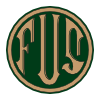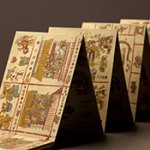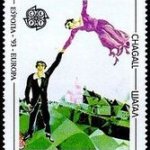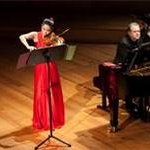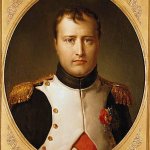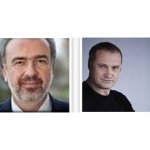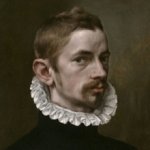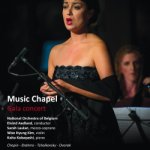The University Foundation organizes lots of activities for the members of the Club. Below you can see short reviews of some past activities. A more complete list can be seen on the French or Dutch web pages.
Lunch at the University Foundation, followed by a short lecture on "Bibliophily and the Art of the Book", an introduction to the exhibition “Op reis in mijn bibiotheek - Voyages dans ma bibliothèque” and a guided tour of the exhibition in the Royal Library with Charles Prion Pansius, Vice-chairman of "The Royal Belgian Association of Bibliophiles
Third activity in the cycle of lunch debates on the theme «A World of Cities» which the University Foundation organises, in collaboration with "la Fondation pour l’environnement urbain Pierre Laconte", for the members of the Foundation and also for a larger public (faculties, economic, social and cultural organisations, ...).
This debate was introduced by Paola Vigano.
Guided visit to the exhibition «Marc Chagall» in the Royal Museums of Fine Arts, preceeded by a lunch at the University Foundation at 12.30 pm.
Over 200 works of Marc Chagall have been gathered worldwide for this major retrospective exhibition. From early paintings of 1908 to his final, monumental works of the 1980s, the show offers a rich overview of the painter’s artistic career.
Lunch debate “The failure of Napoleon's imperial dream” with Prof. Emile Lamberts, Emeritus professor of KU Leuven, Founder and past chairman of KADOC (Center fro documentation and research on religion, culture and society), author of "Europeaan tegen wil en dank. In de voorhoede van Napoleons Grande Armée (1805-1813) ".
Second activity in the cycle of lunch debates on the theme «A World of Cities» which the University Foundation organises, in collaboration with "la Fondation pour l’environnement urbain Pierre Laconte", for the members of the Foundation and also for a larger public (faculties, economic, social and cultural organisations, ...).
Debate introduced by Rector Didiers Viviers and Dean Francis Metzger.
Guided visit to the exhibition "Renaisance Portraits from the Low Countries" in Bozar, followed by a dinner at the University Foundation.
Gala concert of the Queen Elisabeth Music Chapel with the National Orchestra of Belgium
Eivind Aadland conductor - Kobayashi Kaito piano - Sarah Laulan alt - Woo-Hyung Kim violin - National Orchestra of Belgium - Octopus Mannenkoor
Programme
First activity in the cycle of lunch debates on the theme «A World of Cities» which the University Foundation organises, in collaboration with "la Fondation pour l’environnement urbain Pierre Laconte", for the members of the Foundation and also for a larger public (faculties, economic, social and cultural organisations, ...).
Guided visit to the exhibition “The Ottoman Orient in Renaissance Art” in Bozar, followed by a dinner at the University Foundation.
